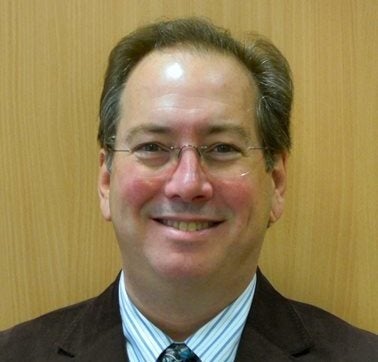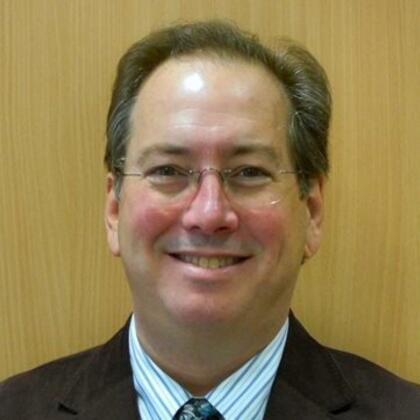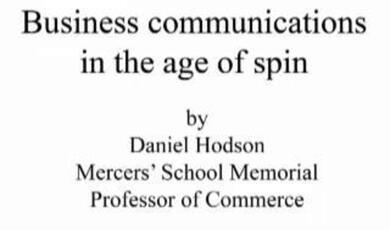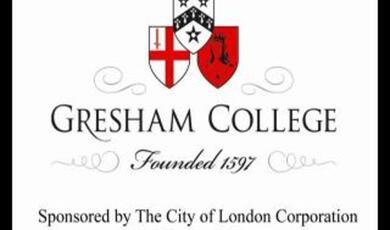It has been argued that economists mistakenly use nations as their unit of analysis when cities are the true generators of wealth. But many have struggled with the concept of cities as units of analysis. This symposium seeks contributions from those who study cities to define them, to specify the problems, and to suggest new analytical tools and techniques. Alderman Professor Michael Mainelli opens proceedings with an introuduction to the symposium. Pictures from the even are available at the Gresham Flickr Page.
30 January 2014
Introduction to
‘Measuring Up Cities’
Alderman Professor Michael Mainelli
My Lord Mayor, Distinguished Guests, Ladies and Gentlemen. It is a privilege to welcome you to one of the high points of the Gresham academic year, our Lord Mayor’s lecture. As President of Gresham College, the Lord Mayor has a special place in our community, and the annual special lecture is an opportunity to advance the intellectual life of the City. Today, the Lord Mayor has reinforced the intellectual advance by combining the lecture with a symposium under our Long Finance series.
As most of you know, Long Finance began in 2005 when we started asking questions related to, “when would we know our financial system is working?”. We now have four major programmes, Meta-Commerce exploring the network of questions which need to be answered, Eternal Coin examining the fundamental nature of money, London Accord researching environmental, social & governance issues, and Financial Centre Futures probing the way we will work in years to come.
Understanding cities and making decisions about their futures is crucial. Marx and Engels referred to the idiocy, or isolation, of rural life. However, while we persist in dreaming of bucolic rural life and urban utopia, cities can be nightmares of dark alleys, filth, squalor, disease, poverty, and crime. Mogadishu, Somalia and Medellin, Colombia are in similar population categories. Mogadishu is a stark reminder of what can happen to a city of over one million when basic infrastructure and services break down. On the other hand Medellin’s population of two million has moved from violent dystopia to a place where urban planners seek ideas.
In stark contrast to a century ago, since 2008 over half the world lives in cities. The UN estimates that by 2050 75% of the earth’s then nine billion people will be living in cities. We must face up to the fact that the future is urban. I would paraphrase the US bank robber Willie Sutton for my definition of a city in the twenty-first century – it is where the people live. But how should we compare Los Angeles with Rio de Janeiro, or Manchester with Mumbai? How can we master the futures of our cities if we cannot measure them?
Inspired by the Lord Mayor, in November last year Long Finance began a Financing Tomorrow’s Cities project. Our aim is simple, to discuss and encourage the development of innovative financing mechanisms, risk management products, and engineering solutions for tomorrow’s sustainable cities. We hope to develop a ‘toolkit’ of relevant methods cities can deploy to face the challenges ahead.
We are advancing primarily through research and online discussions. Already there are almost thirty reports from banks, engineering firms, law firms, insurers, universities, and others on the future financing of cities. There is a vibrant set of online discussions on several topics which everyone is welcome to join.
Today’s symposium continues that discussion. We begin with the Lord Mayor’s address on Tomorrow’s Cities. As an energy lawyer, our Lord Mayor is an expert on many aspects of cities and their infrastructure. Being Lord Mayor is, as you know, a busy job with over 800 speeches per annum. Today’s speech is the longest of her year, but before you sag in despair, it’s sadly only 30 minutes. The Lord Mayor has several further engagements today, including one with a General, and is sorry she cannot stay for the full discussion. We are delighted though with the time and consideration she has given to this important topic, and I have no doubt she will spark much further thought and debate for this afternoon.
No London symposium on cities would be complete without two essential ingredients. The first essential ingredient is Professor Tony Travers of the London School of Economics, my alma mater, who will explore the challenges of measurement and competition. After the break, we have three thought-provoking short talks. The first is by Dr Laura Davison, Head of Research at the world’s most-difficult-city-to-measure, the City of London.
Professor Geoffrey West at the Santa Fe Institute asks, "Why are large cities faster?" The Boltzmann Constant relates particle energy to temperature of a gas. Is there a Boltzmann Constant linking the energy consumption of a city to its social temperature or pulse rate? We are delighted that physicist Dr Hyejin Youn, a senior research fellow of the Institute for New Economic Thinking at the University of Oxford and a research fellow at the Santa Fe Institute is here to present the science. She will be followed by Martin Houghton who, with the City of London Corporation, has just released some fascinating work on the lives and deaths of firms in cities.
And then we move to our panel where, in traditional Long Finance style, we hold an open discussion with you, the audience. Short biographies of all the panellists are part of your information pack.
Sometimes in all the bustle, we feel left out. As Petula Clark popularised, cities make us wonder what’s ‘Downtown’. What’s going on in cities? As Emeritus Professor of Commerce at Gresham College, one way to measure cities is by their commerce. Dominic Mancini, an Italian clerical visitor, perhaps spy, visited London from 1482 to 1483 during the reign of Richard III. Regarding London – “There are in the town many other populous quarters with numerous trades, for whatever there is in the city it all belongs to craftsmen and merchants.” [The Usurpation of Richard the Third: Dominicus Mancinus Ad Angelum Catonem de Occupatione Regni Anglie Per Ricardum Tercium Libellus (1483)].
But cities are not just commercial entities. For me, cities are about three things - commerce, community, and charity. The second essential ingredient on any symposium on cities is a quote from the doyenne of the subject, Jane Jacobs - “Cities have the capability of providing something for everybody, only because, and only when, they are created by everybody.” Today we get to explore how we might measure commerce, community, and charity. If we can get the measure of our cities, then we can create the cities we need and want.
Ladies & Gentlemen, may I present the Rt. Hon. The Lord Mayor, Alderman Fiona Woolf CBE, to open our proceedings with Tomorrow’s Cities.
© Alderman Professor Michael Mainelli, 2014


 Login
Login







